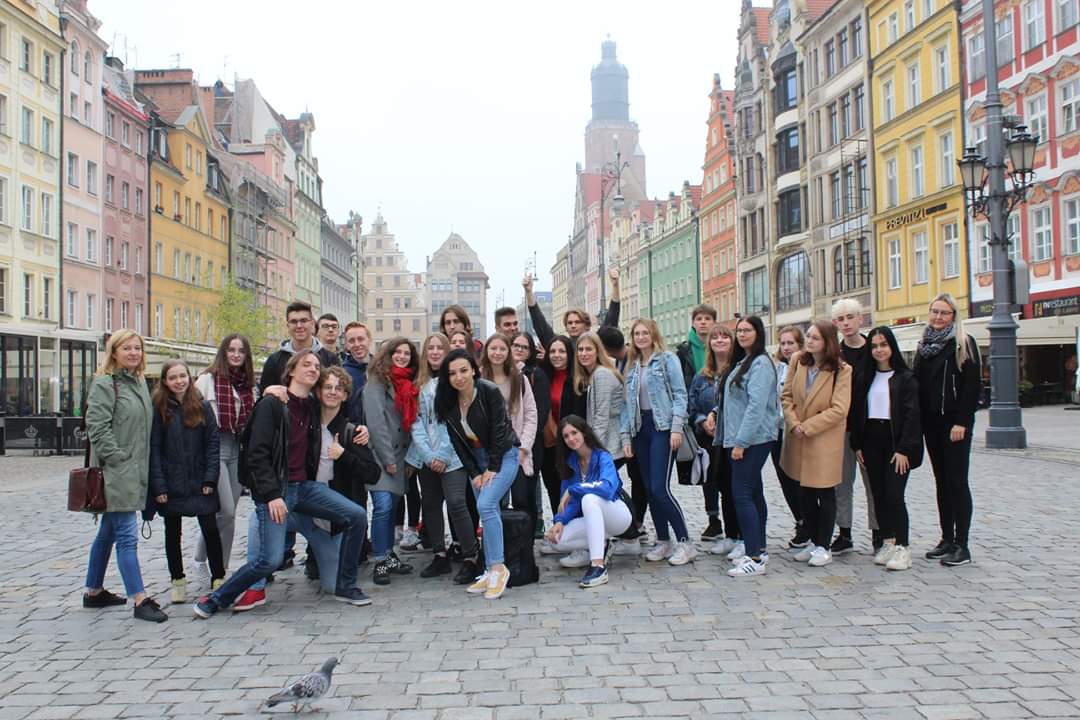Is it what people eat and drink every day? Is it how people celebrate certain days and what customs they have? Is it what you can see in the museums, the paintings, the music or the literature? Is it even possible to define it?
I wouldn’t even be able to explain what the German culture is. Of course, I am going to mention the language. However, if I use this as a benchmark, I will be confronted with another point, the country borders of Germany. This language is not only spoken within the borders of Germany. Therefore, I will need to ask myself: Are people from Austria, Switzerland or Liechtenstein also part of the German culture?
Asking this question, would give me a variety of answers. While some people would agree on a common cultural basis, some others would resist and claim that they have their own culture. If you go to the canton of Graubünden in Switzerland, a generally German-speaking region, you will be confronted with very different cultures in every valley of this mountainous region, some even speak another language called Romansh. For people from similar regions in the Alps, the hip-hop and techno culture of Berlin seems like something from another planet.
But if it is not the language that defines the culture, what is it? Maybe the country borders? Well, again no! The borders of Germany have changed so often over the course of history, that it makes only little sense to use this as the defining basis. The region where I live now, Silesia, has been part of lots of different empires. It was Polish, Mongolian, Austrian, Czech, Russian, German and so on. This makes it impossible to use the country borders as the central point, because Silesia did not change from Austrian to Prussian or from German to Polish from one day to another. It is even hard to take a stance for that Silesia has ever really been part of one of these cultures. It is already difficult to argument with country borders within Europe and I am not even talking about African countries, where colonial administrators just drew lines on maps.
As you can see, it is almost impossible to find a common basis for everybody who’s part of a certain group that could be defined as a group with its own culture. However, it is possible to explain a culture by highlighting the differences to another group of people.
To give an example, if everybody spoke English, languages wouldn’t be considered as anything important. Nonetheless, because we all speak different languages depending on where we are from, the language is something that unites us with some people and that separates us from others. Therefore, you can only see the language you speak as a cultural difference when you meet people with whom you cannot communicate in this language.
Moreover, every language is appropriate to its use. There are many words which only exist in your own language and which can only be explained in another language and cannot be directly translated. The German word Gemütlickeit can be found in other Germanic languages and describes a cozy state of mind that you can have in a certain place, but there is no direct equivalent in English for example. Also, there is a variety of words to describe different types of green in some languages which are spoken by peoples closer to nature, to give another example.
Because the language is only the tip of the iceberg of a culture, it is necessary to look below the surface. There are some rules of behavior and values which are typical for a certain culture. In the German culture e.g. a direct way of communication and the importance of reliability are more valued than in other cultures. As you can see, the existence of more than one culture is the premise for us even realizing that we have a culture.
Therefore, I don’t want to highlight some small cultural differences in language, customs, traditions, behavior etc. as we all know some cultural differences ourselves. In the globalized world of today it is impossible not to be confronted with other cultures and therefore we will all encounter cultural differences. I would like to focus more on how to deal with cultural differences and to what extent it is a challenge for us, because that’s what really matters.
First, I must accentuate that the gaps between two cultures are never the same. While I may not find it easy to navigate through the Chinese culture, it is not that hard for me to adapt to the appropriate behavior in most European countries although there are already huge differences between European cultures.
Second, it really depends on how deep we dig into the layers of another culture. Normally, we only visit other countries for vacation, and we may recognize some differences. A tourist in Poland will try some Polish food, hear Polish people talking in their language or visit a museum. It is normal to recognize some cultural differences even on the day of arrival as they are sometimes very visible.
Nonetheless, this is again only the tip of the iceberg. What’s hidden below the surface are the actual reasons for these differences. Why do Polish people eat so much cabbage? Why is the Polish language so complicated? Why do they have such a different view on patriotism?
It is impossible to find answers to all questions we will ask ourselves when we encounter another culture and sometimes, we will not be able to comprehend the reasons. I will never understand why it is so hard for many Polish people to just come to the point when they are talking to me, because in Germany the communication is very direct.
Nevertheless, trying to understand the reasons for a certain behavior is very important. If we don’t try to recognize and understand the cultural differences, this will result in a clash of our cultures. We all perceive the world through the glasses of our culture. All in all, this is a good thing, because we can navigate through our own culture quite easily. However, we should not forget this when we encounter other cultures. They may be different, but not inferior. It would be easy for me to just think that Polish people are just a bit confused or even stupid but thinking of our own culture as superior is very dangerous. This mindset is the basis for xenophobia, homophobia, racism, antisemitism and other forms of discrimination.
To put it in a nutshell, cultures are something impalpable. We can’t really explain our own culture without highlighting the differences to another culture. This is the basis of a certain identity we get when we see ourselves as part of a group with whom we share a lot, no matter if we see ourselves as part of the German or Polish culture, or the hippie or punk culture. Culture creates unity with some and separates us from others. It is part of our identity, but it is up to every one of us, to build bridges over the troubled waters of cultural misunderstanding and not let ignorance prevail.
Author: Benedikt Putz

